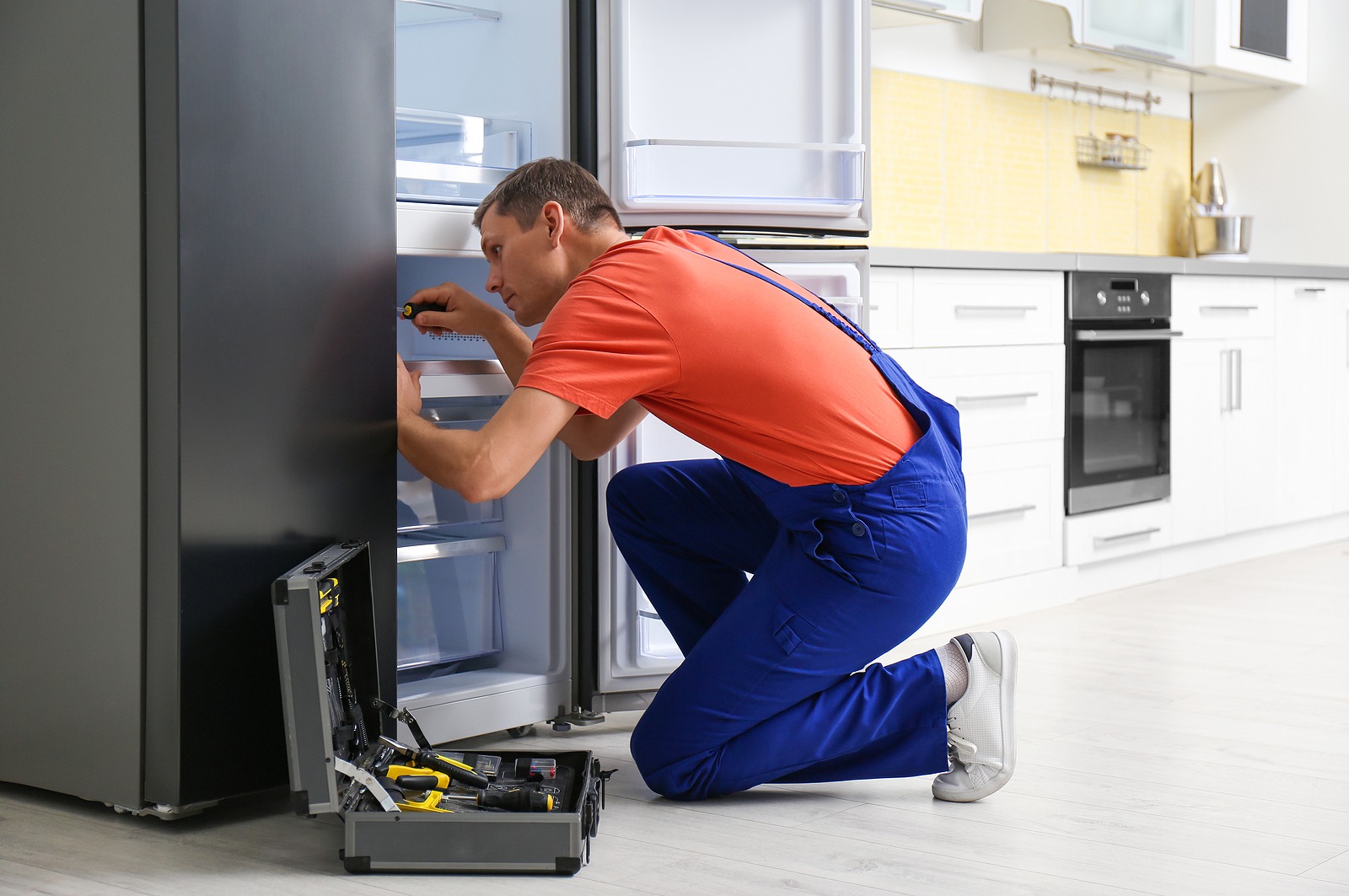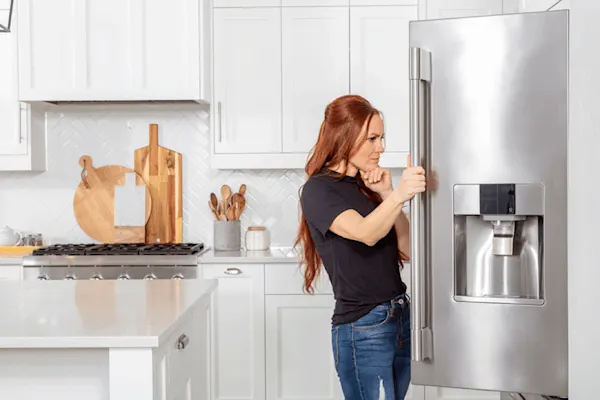The Ultimate Guide to Understanding Appliance Fixing in the house
When your refrigerator stops cooling down or your stove rejects to heat, it can feel frustrating. Understanding appliance fixing in your home can conserve you time and money. You'll discover to recognize signs, utilize important devices, and follow a methodical troubleshooting procedure. Yet before you begin, there are crucial safety and security preventative measures you require to take right into account. What are the most typical problems, and how can you repair them? Allow's discover the essentials.
Usual Appliance Problems and Their Signs and symptoms
When your devices begin acting up, it's important to recognize the indications at an early stage. Ignoring them can result in larger issues and pricey fixings. If your fridge isn't cooling down properly, you might discover cozy places or condensation developing. This can suggest a failing compressor or an obstructed vent.Your dishwasher may reveal problems with unclean dishes or unusual sounds during cycles. If you listen to grinding or clanking, it's time to investigate.A cleaning equipment that will not rotate or drain pipes can leave you with soggy washing, suggesting a clogged up drain or a malfunctioning pump.Lastly, if your stove's temperature level seems off or it takes permanently to pre-heat, you could be handling a defective thermostat. By staying alert to these signs and symptoms, you can address issues prior to they rise right into significant repairs.
Necessary Tools for Home Appliance Repair Work
When you're tackling appliance fixings in the house, having the right tools is essential. Fundamental hand tools like screwdrivers and pliers will certainly assist you take apart and take care of numerous home appliances, while electrical testing devices guarantee you're working safely with electrical wiring. Allow's discuss what you require to begin on your repair work trip.
Basic Hand Tools
Having the right devices is crucial for reliable device repair work in the house. Start with a trustworthy screwdriver collection, consisting of both flathead and Phillips kinds, as screws are typical in appliance setting up. Pliers are also vital; they assist with gripping, twisting, and reducing cables or tiny components. A pair of needle-nose pliers can get to tight spots conveniently. You'll require a good flexible wrench for tightening up or loosening nuts and bolts. An utility blade comes in handy for reducing through packaging or insulation. Do not neglect a tough workbench or surface to securely organize your tools and components. With these fundamental hand devices, you'll be well-prepared to take on most home appliance repair work that come your means.
Electrical Testing Gadgets
Along with standard hand devices, electric testing tools play a vital duty in appliance fixing. These devices aid you diagnose electric problems and warranty appliances operate safely. A multimeter is vital; it measures voltage, present, and resistance, allowing you to determine troubles rapidly. A non-contact voltage tester is one more must-have, allowing you discover real-time cords without making direct get in touch with, improving your safety. Secure meters are wonderful for determining existing circulation in cords without detaching them, saving you time and effort. Additionally, circuit testers can swiftly check if outlets are operating appropriately. By making use of these devices, you'll enhance your troubleshooting procedure and boost your repair work skills, making appliance upkeep a great deal less complicated.
Step-by-Step Guide to Diagnosing Device Issues
When your home appliance breaks down, it can be discouraging, yet identifying the issue does not have to be frustrating. You'll discover to determine common issues and use effective fixing strategies. Let's stroll with the actions to obtain your appliance back in functioning order.
Typical Device Problems

Troubleshooting Strategies Clarified

Repairing Significant Cooking Area Devices: A Closer Look
Have you ever before questioned how to tackle usual issues with your kitchen appliances? Repairing major kitchen area devices like refrigerators, stoves, and dishwashers can be less complicated than you think. Beginning by determining the problem-- whether it's a refrigerator not cooling down or an oven that will not warm. Often, an easy reset or examining the power source can address the issue.For refrigerators, tidy the condenser coils and check the door seals. If your stove's not home heating, inspect the home heating element and thermostat. Dishwashers could just need a clean filter or a reset to get them back in activity. Constantly unplug the home appliance prior to diving right into repair services to guarantee your safety.Don' t neglect to seek advice from the customer manual for details troubleshooting ideas associated to your version. With a little bit of persistence and the right devices, you can confidently tackle device repair work and save money while doing so!

Fixing Laundry Devices: Tips and Techniques
When your washing home appliances find out here now start acting up, it can really feel frustrating, like it however fixing them does not have to be a problem. Begin by examining the power supply. Verify the home appliance is plugged in and the outlet is operating. Next off, inspect the door or lid button; a malfunctioning button can avoid the machine from operating.For washing machines, if it's not rotating, examine for out of balance lots. Rearranging the clothes could resolve the concern. If your clothes dryer isn't heating, clean the dust filter and check the vent for blockages.Listen for uncommon noises; they can suggest a problem. If your appliance is dripping, check the tubes for fractures or loose links. Paper any type of error codes shown on electronic displays, as they can guide you in determining the problem. Ultimately, speak with the individual handbook for particular troubleshooting tips connected to your version.
Safety And Security Precautions to Take Throughout Repair works
Prior to you begin any kind of home appliance repair work, it's essential to prioritize safety to stop mishaps or injuries. Disconnect the appliance or turn off the circuit breaker to guarantee no power reaches it while you function. Use insulated tools to decrease the threat of electric shock. Put on security goggles and gloves to shield on your own from sharp sides or debris (Washer dryer repair service Dependable Refrigeration).Make certain your office is clean and well-lit, so you can see what you're doing. Keep kids and pets far from the location to prevent distractions and potential dangers. If you're taking care of gas home appliances, be added careful; look for leakages prior to proceeding.Take your time, and don't rush with fixings. If you really feel unclear concerning any type of action, it's far better to stop briefly and research study than to think. Following these safety measures will assist produce a safer atmosphere for your DIY device fixing task
When to Call a Professional for Aid
How do you understand resource if it's time to call in an expert for device repair work? If you've attempted standard troubleshooting without success, it's a clear indication. If your device still won't start or reveals uncommon sounds after resetting it, do not be reluctant to look for expert help.When you see leakages, smoke, or shedding scents, prioritize safety and security and call a professional promptly. These problems can lead to more considerable damage or pose risks to your home.Also, if your appliance is under guarantee, speaking to a specialist is often the ideal route. They can guarantee that fixings won't nullify your guarantee, saving you cash in the lengthy run.Finally, if you're unclear or uneasy with complicated fixings, it's important to leave it to the professionals. Keep in mind, tackling difficult problems without the right competence can lead to expensive blunders. Trust a specialist when in doubt!
Regularly Asked Questions
Just How Can I Protect Against Appliance Problems in the Future?
To stop device troubles in the future, you need to do normal upkeep, check for wear and tear, tidy filters, and stay clear of overloading. Staying positive will certainly assist expand their life expectancy and keep them running smoothly.
What Are the Many Usual DIY Home Appliance Fixing Mistakes?
You may forget security preventative measures, avoid fixing actions, or make use of incorrect tools when trying DIY device repairs. Rushing the process or ignoring manufacturer standards can bring about more substantial concerns and pricey mistakes. Stay client and notified!
Exactly how Do I Know if a Component Demands Substitute?
You can inform if a component requires substitute by checking for uncommon noises, leaks, or irregular performance. If the home appliance struggles to run properly or shows visible damage, it's most likely time for a substitute.
Can I Use Generic Parts for Appliance Fixes?
Yes, you can use common components for appliance fixings, however identify they're suitable - Fixes washers and dryers Oro valley Dependable Appliance Repair. Generic components could save you money, yet they can affect efficiency or durability, so weigh your choices thoroughly prior to choosing
What Guarantees Cover Device Repair Works?
Many appliance service warranties cover repair services for making problems, however they frequently leave out damage from misuse. Check your guarantee terms very carefully, as some may require using qualified specialists and initial components for insurance coverage to continue to be legitimate.
 Alana "Honey Boo Boo" Thompson Then & Now!
Alana "Honey Boo Boo" Thompson Then & Now! Romeo Miller Then & Now!
Romeo Miller Then & Now! Mike Vitar Then & Now!
Mike Vitar Then & Now! Shane West Then & Now!
Shane West Then & Now! Jeri Ryan Then & Now!
Jeri Ryan Then & Now!